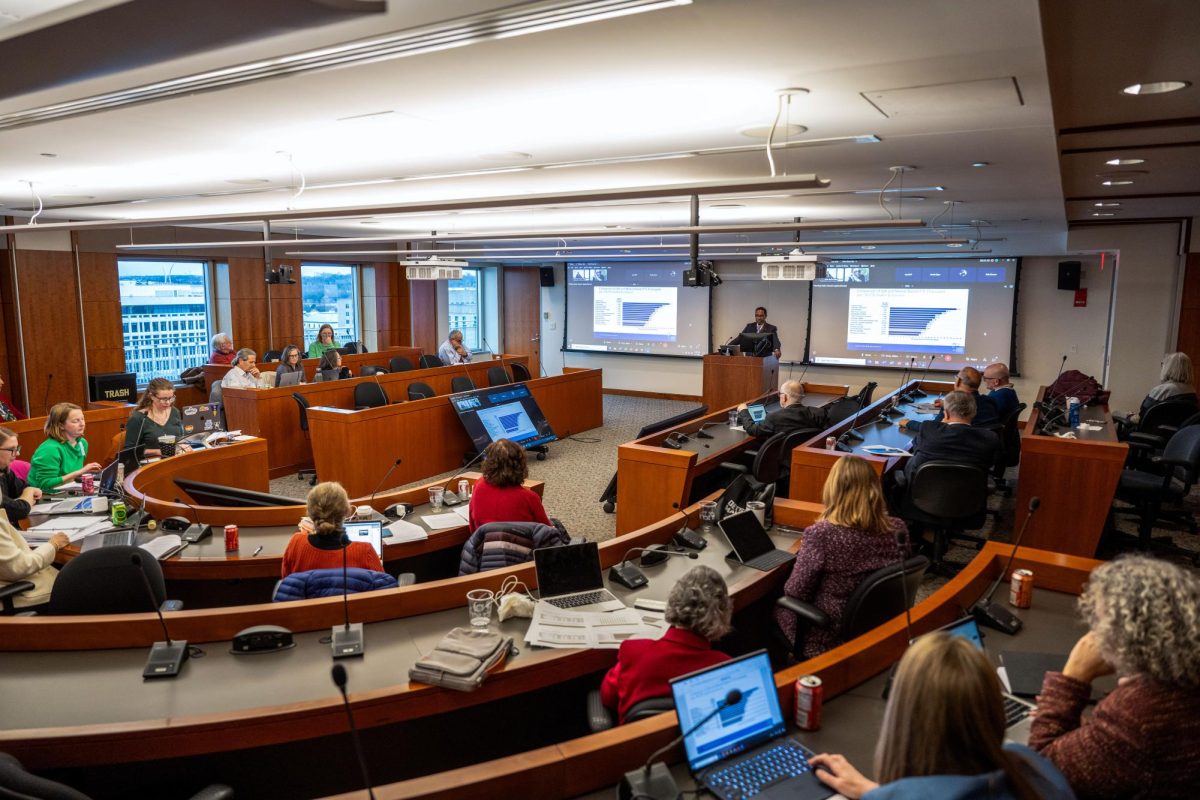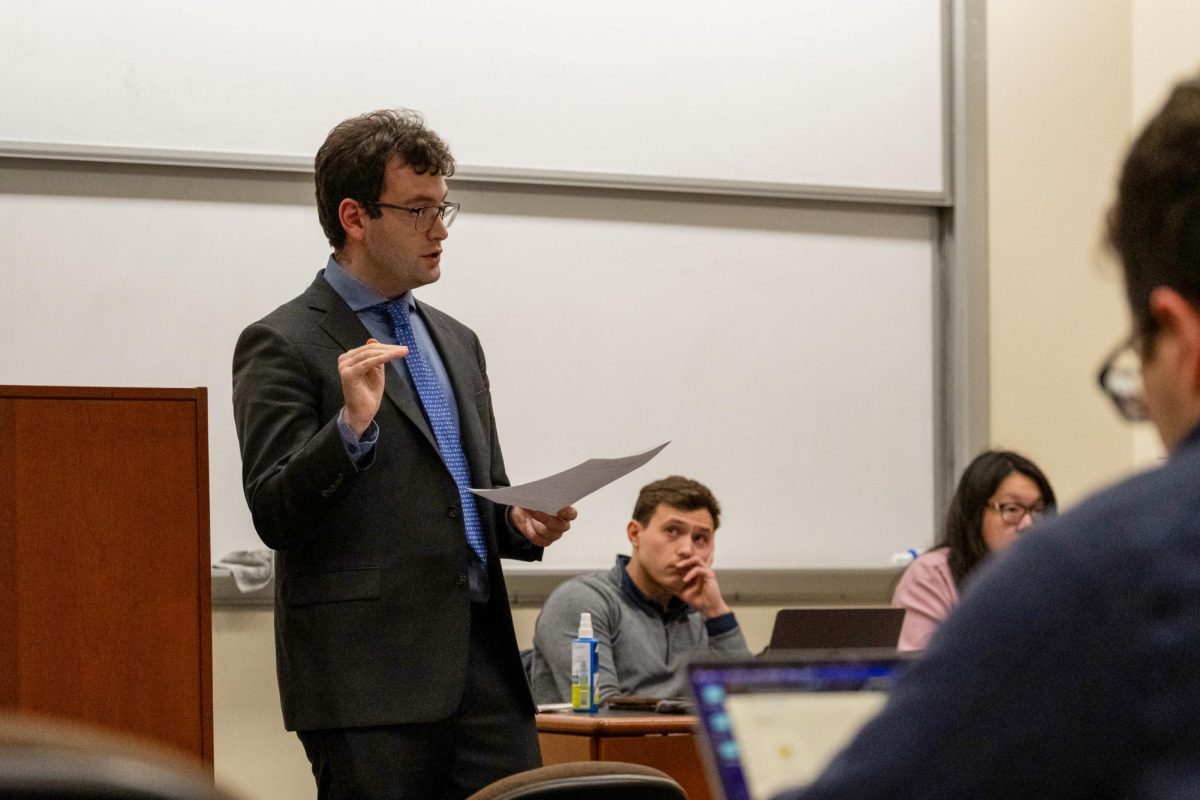Administrators, full-time faculty and Board of Trustees members said officials should work to improve communication and change administrative hiring policies in a survey released last week soliciting feedback on shared governance.
Faculty, administrators and trustees are divided on how they think officials should choose new University presidents and provosts but agree that decisions on issues like campus planning and admissions should be a joint effort. The 12-member shared governance task force launched the survey in February to come up with recommendations to share with administrators this spring on how to improve shared governance.
Less than 45 percent of faculty participated, while more than half of administrators and all Board members submitted responses to the survey.
Administrators outlined the beginnings of their shared governance plans in a series of town hall events in October. Officials have said they hope to have formal recommendations for a shared governance policy by May.
“The virtual town halls, the survey and the fruitful discussion at the virtual retreat have demonstrated that the community is eager to work together to arrive at a consensus around the meaning and expectations of shared governance so that the university can continue to strive for excellence in its third century,” the survey’s authors said in a statement.
The majority of full-time faculty and administrators who filled out the survey said the three groups should jointly take the lead on selecting a new University president and long-term strategic planning, but the majority of trustees believe the Board should take the lead. But the majority of all three groups generally agreed that they should play a joint role in forming policies like those surrounding admissions, research spending, campus life, the selection of deans and financial planning.
More than 60 percent of Board members said administrators should be responsible for choosing new University provosts, while the majority of administrators and faculty said it should be a joint decision.
The Faculty Senate passed a resolution in February 2020 criticizing officials for making plans to implement the now-obsolete “20/30 Plan” without consulting faculty members.
The majority of faculty members, administrators and trustees agreed on the importance of improving communication and a “culture of respect” among the three groups on University policies and how governance will work in the future.
“One of the issues raised in both the town halls and in task force meetings was ‘who speaks for the faculty’ – that is, which groups should represent faculty perspective to the administration, and which groups should be responsible for communicating to the administration once faculty make their recommendations,” the task force members said in a February statement.
[pdf-embedder url=”https://www.gwhatchet.com/wp-content/uploads/2022/03/Shared-Governance-Survey-Presentation-_-final.pdf” title=”Shared Governance Survey Results”]
More than 70 percent of faculty said the Faculty Senate and Faculty Assembly should represent their interests to administrators, especially with long-term issues. Less than 50 percent said the existing department leadership should play a leading role as representatives.
More than 90 percent of full-time faculty members also said it was either “very important” or “extremely important” for administrators to consult with faculty members – including junior faculty – on major policy and long-term strategic planning decisions. The majority of trustees and administrators agreed but did not indicate it was as important.
The task force will use the survey results to come up with a series of governance and communication recommendations to be presented and voted on by the Board and University leaders by the end of May, officials said in October. The recommendations address the different rights and responsibilities of governing faculty groups – including the Faculty Senate and Faculty Association – in addition to administrators and the Board.








